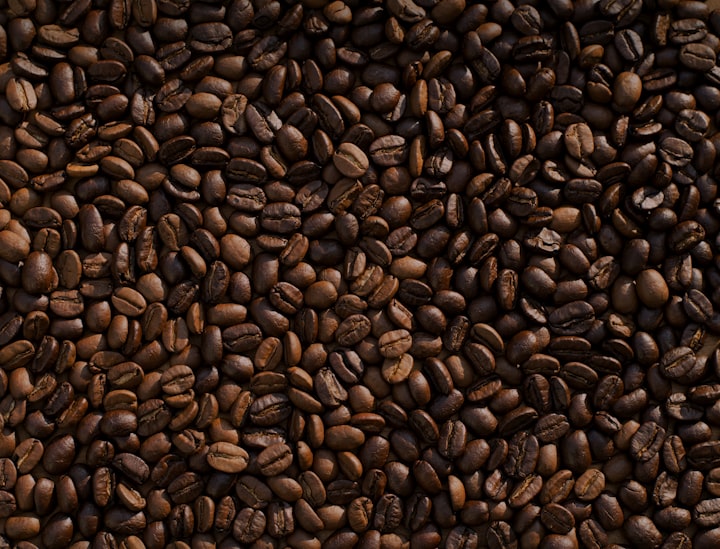Chocolates : Side Effects
Side Effects of consuming chocolates

Chocolate is one of the most popular sweet treats enjoyed by millions of people around the world. It's a versatile ingredient that can be used in a variety of recipes, from cakes and cookies to ice cream and drinks. However, despite its many health benefits, chocolate also has some adverse effects that you should be aware of. In this blog post, we will explore the potential risks associated with consuming too much chocolate.
Weight Gain
One of the most significant adverse effects of consuming too much chocolate is weight gain. Chocolate is high in calories, fat, and sugar, which can quickly add up if you eat too much of it. Over time, consuming too much chocolate can lead to obesity, which in turn increases your risk of developing other health problems like diabetes, heart disease, and cancer.
Heartburn and Acid Reflux
Another common adverse effect of consuming chocolate is heartburn and acid reflux. Chocolate contains caffeine and theobromine, two substances that can relax the esophageal sphincter, allowing stomach acid to flow back into the esophagus. This can cause a burning sensation in the chest and throat, as well as nausea and bloating.
Digestive Issues
One of the most common adverse effects of chocolate is digestive problems. This is because chocolate contains several compounds that can irritate the digestive system and lead to indigestion, acid reflux, and other issues.
Here are some ways that chocolate can negatively impact your digestion:
Chocolate is high in fat: Chocolate contains a high amount of fat, which can slow down digestion and cause discomfort in some people. This is especially true if you consume large amounts of chocolate or if you have a sensitive stomach.
Chocolate contains caffeine: Chocolate contains caffeine, which can stimulate the production of stomach acid and lead to acid reflux and heartburn. This is particularly true for dark chocolate, which contains higher levels of caffeine than milk chocolate.
Chocolate contains theobromine: Theobromine is a compound found in chocolate that can also cause digestive issues. Theobromine can stimulate the muscles in the digestive tract, which can lead to diarrhea or loose stools.
Chocolate contains sugar: Chocolate is also high in sugar, which can cause inflammation and irritation in the digestive tract. This can lead to bloating, gas, and other digestive issues.
L-cysteine Extracted from Human hair
L-cysteine is an amino acid that is commonly used as a dough conditioner and flavor enhancer in the food industry.
While it is true that some manufacturers use L-cysteine derived from human hair in their food products, including chocolate, it is not a common ingredient in chocolate.
L-cysteine is typically used in baked goods such as bread, crackers, and pizza dough, as well as in some processed meats and cheeses. The most common source of L-cysteine is actually duck feathers, but it can also be derived from hog hair, chicken feathers, and human hair.
Some chocolate manufacturers may use L-cysteine as a dough conditioner in the production of chocolate-based baked goods or chocolate-flavored items.
Since it is used less than 2%, we cannot find this ingredient in chocolates back label.
Migraines
Chocolate is a common trigger for migraines, a type of headache that is often accompanied by sensitivity to light and sound, nausea, and vomiting. The exact reason why chocolate triggers migraines is not fully understood, but it is believed to be due to the presence of theobromine, caffeine, and tyramine, all of which can cause blood vessels in the brain to dilate and become inflamed.
Insomnia
Chocolate contains caffeine, a stimulant that can interfere with your sleep if consumed in large amounts. Consuming chocolate before bed can cause insomnia, which can lead to fatigue, irritability, and decreased productivity during the day.
Allergic Reactions
While rare, some people may experience allergic reactions to chocolate. The symptoms of a chocolate allergy can range from mild itching and hives to severe anaphylaxis, a life-threatening condition that requires immediate medical attention. If you have a known allergy to chocolate or any of its components, it's important to avoid consuming it.
Tooth Decay
Chocolate is high in sugar, which can lead to tooth decay if consumed in excess. Bacteria in your mouth feed on the sugar in chocolate, producing acid that erodes your tooth enamel and causes cavities. It's essential to brush your teeth regularly and limit your intake of chocolate to prevent tooth decay.
Chocolate is undoubtedly delicious, but it's important to consume it in moderation to avoid its adverse effects. While it has many health benefits, consuming too much chocolate can lead to weight gain, heartburn, migraines, insomnia, allergic reactions, and tooth decay. It's essential to be mindful of your chocolate consumption and to seek medical attention if you experience any adverse reactions. As with any food or beverage, moderation is key to enjoying the health benefits of chocolate while minimizing its potential risks.
About the Creator
Arun Ramasamy
Nature Lover, Just go with the flow, techno freek.
Do what you can.. don't when you cannot.






Comments
There are no comments for this story
Be the first to respond and start the conversation.